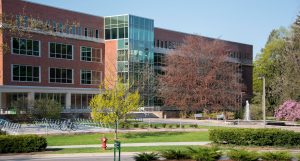
Save The Date!
Second Language Studies Symposium
Friday, February 21, 2020
For the day’s schedule, please click here.
Featuring:
Multi-Competence, Translanguaging, and Multimodal Learning
Li Wei, UCL Institute of Education, University College London
https://iris.ucl.ac.uk/iris/browse/profile?upi=LWEIX65
This is a conceptual paper that aims to extend the concept of Linguistic Multi-Competence and advance Translanguaging as a research perspective (in addition to pedagogical approach). It focuses on the theoretical foundations of Translanguaging and explores the implications for language teaching and learning in particular and for bilingualism and multilingualism research generally. Core issues such as the role of L1, transfer, learner autonomy, will be revisited from the Translanguaging perspective. Empirical examples from self-directed mobile language learning will be used to demonstrate the added value of the Translanguaging approach.
Instructional approaches to multiword items in a second language: A critical review
Frank Boers, Western University, London, Ontario
https://www.edu.uwo.ca/faculty-profiles/frank-boers.html
The past two decades have witnessed a proliferation of studies on multiword items (phraseological units such as collocations, idioms and phrasal verbs), including research on the effectiveness of diverse interventions intended to help learners acquire such items. Studies on the effectiveness of these interventions are typically of a comparative nature, where the learning gains resulting from a given procedure are found to be significantly greater than the gains observed under a comparison or control condition. In this talk I will review a collection of such studies adopting a practitioner’s perspective in doing so. It will be argued, for example, that some of the approaches put to the test in empirical research are unlikely to be tried by teachers owing to the substantial investment of time and effort they require. A recurring theme in the talk will be the distinction between statistical significance and pedagogical significance of the research findings. While it is of course useful to detect whether one treatment condition leads to more learning than another according to inferential statistics, it is also worth taking a closer look at descriptive statistics to evaluate how encouraging the learning gains really are under the more successful treatment. The talk will conclude with suggestions for further, pedagogy-oriented, research in this area.
